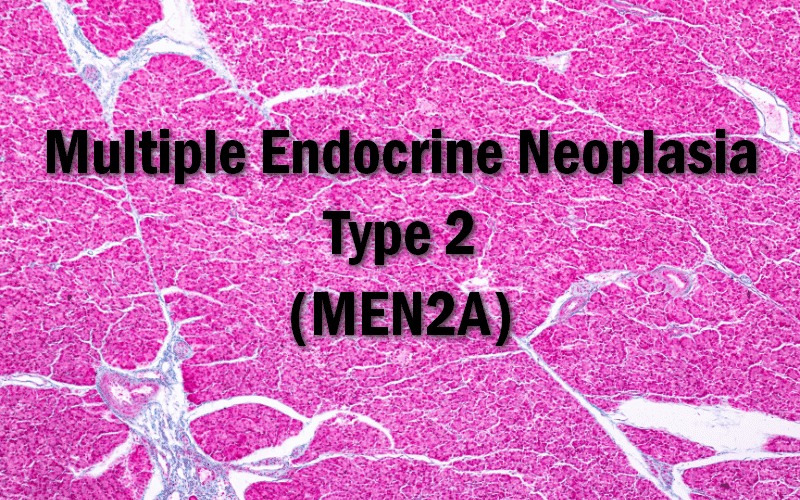Type 2: MEN2A, The Genetic Rebel

The saga of MEN continues with MEN2A. This subtype of MEN2 is a master of genetic rebellion, making it the most commonly occurring variant. It showcases how genetic disorders can hijack the body’s hormone production, leading to severe complications and persistent symptoms.
MEN2A carries a signature mark—the growth of tumors in up to three different types of endocrine tissues. However, its distinct feature lies in Medullary thyroid carcinoma (MTC), a unique type of thyroid cancer. This signature trait helps distinguish MEN2A from other types of MEN.
The genetic roots of MEN2A follow an autosomal dominant inheritance pattern. This genetic lineage means that just one copy of the altered gene is enough to set the stage for the disorder. In many cases, this altered gene is the RET gene, known for its role in cell division and maturation.
To pin down a diagnosis, physicians rely on a mix of physical examinations, laboratory tests, and genetic testing. Physical exams can provide vital clues about the presence of tumors or any physical abnormalities. Laboratory tests can detect any anomalies in hormone levels. And genetic testing, the real game-changer, can confirm the presence of the mutated RET gene.
The narrative of MEN2A illustrates how genetic disorders can influence the body’s hormone production. It’s a glaring example of the body’s own cells rebelling, triggering a cascade of adverse effects. The exploration of MEN2A gives us a stark reminder of how genetic conditions can alter our bodies and the importance of understanding these changes. (2)